Protein Production
Expertise Across All Target Classes
We produce high quality recombinant proteins tailor made to meet our clients´ needs. In our PRIME PROTEIN program, we are advancing innovations in protein expression systems and purification processes to generate stringently quality-controlled proteins for use in assays, screening, cryo-EM and crystallization. Protein can be expressed in E. coli as well as insect and mammalian cells in milligram quantities.
For hit validation, target proteins are produced with our highly parallelized expression and purification platform. Our innovative approach in protein expression generates stringently controlled premium proteins for use in house or delivered to the client. Decades of accumulated protein expertise enable us to provide you with difficult to produce proteins and protein complexes: e.g. membrane proteins, secreted proteins metabolic enzymes, proteases, heat shock proteins, nuclear receptors, epigenetic proteins, phosphatases and kinases.
With our proprietary bi-turbo vector system, we express target proteins in parallel in E.coli and insect cells from the identical plasmid construct. These vectors are available with different baculovirus promotors for optimal timing of recombinant protein expression. Our optimized virus DNA backbones allow for convenient co-expression of additional factors to enhance yield and homogeneity of recombinant proteins. Our highly parallelized expression systems are optimized to significantly increase protein recovery thus making the process time cost effective.
In addition, we offer recombinant proteins from mammalian cell culture, e.g. HEK cells, as well proteins specifically labelled for NMR experiments. All our customized recombinant proteins undergo stringent quality control, are tested for stability and supplied to you only after all specifications are met.
Assay Grade Protein Production
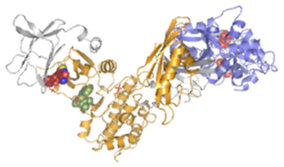
AMPK – AMP activated protein
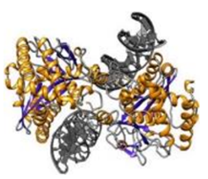
cGAS-DNA sensor in the STING pathway
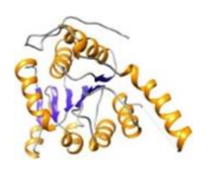
SMARCA2 – transcriptional regular / chromatin remodeling
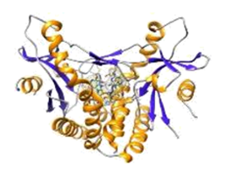
STING-stimulator of interferon genes
Seamless platform from protein production to structure-based drug design
- Cancer and Inflammation ATM, AMPK, NEK7, PI3K, ROR1,SRC, ULK1, WEE1, NLRP3
- Membrane Proteins Glucose transporter, P2X3, GPR40, CNR1, β2AR…
- DNA Damage Response ATM, ATR/ATRIP, CHK1, CHK2, CDKs and cyclins …
- Neurodegeneration BACE1, PDE, NFE2L2, PTPN1, MAO-B, NTRK1, JNKs…
- RNA/DNA Mod. Proteins FEN1, EME1, RIG-I, SND1, WRN, SMARCAs…
- Epigenetic Targets BRD2, BAZ1A, CREBBP, SIRTuins, HDACs, EHMT1…
- Immune System cGAS, STING, IL1, ILRL1, MMPs, antibodies…
Biopharmaceutical Assays Protein Stability and Aggregation
Protein Stability and Aggregation
WuXi AppTec offers the highly accurate and robust characterization of protein stability by analyzing thermal unfolding, aggregation and chemical denaturation using nanoDSF technology – an advanced Differential Scanning Fluorometry (DSF) method.
Advantages of nanoDSF:
- Native – label and dye free conditions, any buffer
- Precise – ultra high resolution
- Fast – 48 capillaries within 3 seconds
- Broad – all target classes, concentrations from 5 µg/ml to > 250 mg/ml
- Efficient – low sample consumption
WuXi AppTec offers a broad application range for antibodies and membrane proteins:
- Buffer and formulation screening and optimization
- Quality control
- Stability screening for antibodies in cell culture supernatants
Mass Biologics
The development of biologics requires precise biophysical analytics at all stages in the process. With nanoDSF we measure protein melting curves that are truly label free by analyzing intrinsic tryptophan fluorescence. By using nanoDSF, proteins can be measured in any kind of buffer containing any type of additives (e.g. detergents). Moreover, the dynamic range of simultaneously measurable concentrations spans from 150 mg/ml down to 5 μg/ml in a working volume of 10 μl. The technology is used for analysis of protein quality and stability, with applications including protein engineering, formulation development and batch to batch comparison.
For our clients we can analyze:
- Tm – Thermal unfolding
- Tagg – Temperature onset of aggregation
- Cm – Chemical unfolding
- DeltaG – Free folding energy and prediction of long-term stability
WuXi AppTec is currently operating the Prometheus NT.48 from NanoTemper with its advantageous low sample consumption and a broad concentration range from ng/mL to mg/ml.
Fragment-Based Drug Discovery
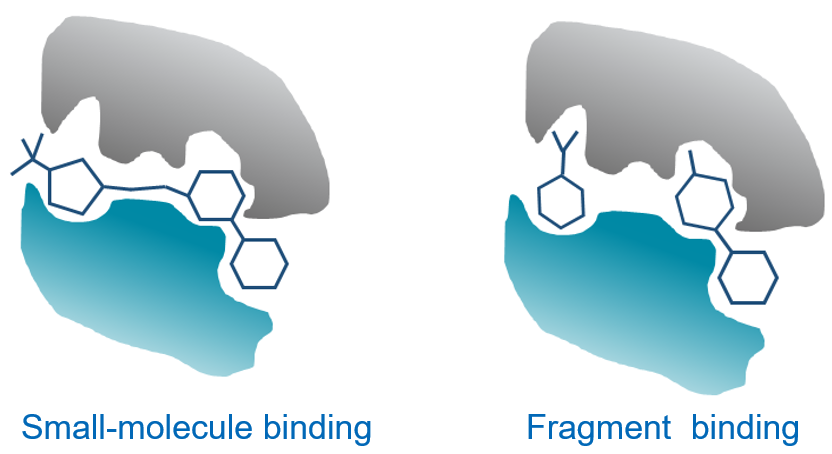
WuXi AppTec offers fast and cost-efficient hit identification by fragment screening or virtual high-throughput screening. We have several well-tended fragment libraries totaling more than 3,100 compounds.
In addition, client libraries can easily be integrated in our workflow. A suite of orthogonal hit confirmation assays, including SPR, MST, DSF/nanoDSF, NMR or MS can be selected, and validated hits can be subjected to crystallization to obtain structural information.
Screening | Microscale thermophoresis (MST) and temperature related intensity change (TRIC)
Hit Confirmation | Surface Plasmon Resonance (SPR)
Hit Confirmation | Nanoscale differential scanning fluorimetry (nanoDSF)
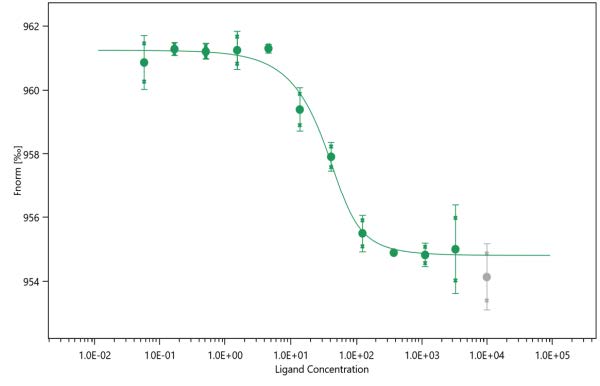
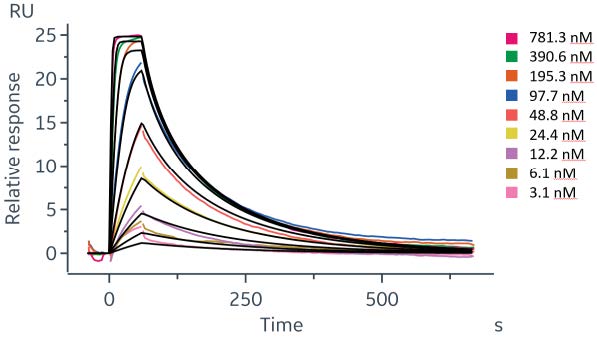
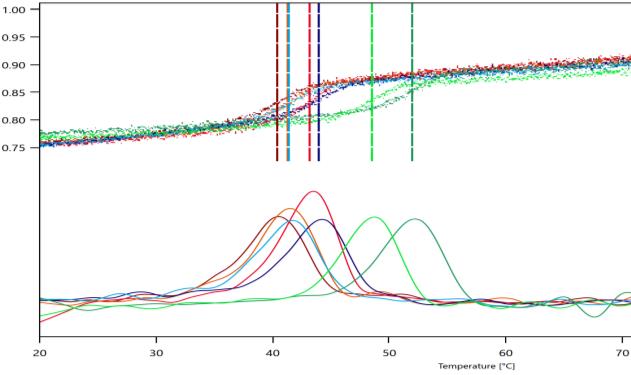
Biophysical Assays and Screening
Overview
WuXi AppTec has established a number of biophysical and biochemical assays and methods which can be combined according to the needs of a specific project. Our INTRACT platform comprises various methods for biophysical assays and screening in low to medium throughput. It is ideally suited for fragment screening or validation of compounds from focused libraries, HTS hits or collections generated from virtual screening approaches.
The WuXi AppTec biophysical assay platform includes measurements of enzymatic activities, on/off binding kinetics, KD analyses and stability determination of proteins. The INTRACT biophysical analytics and screening platform is made of a versatile series of orthogonal assay technologies for hit validation including:
- Alpha Screen
- DSF / nanoDSF
- Enzyme Activity
- Fluorescence Cross-Correlation Spectroscopy*
- Fluorescence Polarization Assays
- Kinetic Assays
- LC-MS Screening*
- Microscale Thermophoresis (MST)
- NMR Screening*
- SPR
- SwitchSENSE
* access to technology and devices through long-term relationships with local collaboration partner
Our robotics-enhanced screening platform provides efficient, cutting-edge technologies for protein biophysical services and for the analysis and validation of compounds. Thus, INTRACT enables highly accurate and sensitive measurements under close-to-native conditions to reliably guide the optimization of your compounds.
The platform can also be used for fast and reliable control of protein quality, measuring bimolecular interactions such as protein-protein, fragment-protein binding, and the analysis of DNA, RNA, peptides or antibodies interactions. Additionally, INTRACT can be added to any computational chemistry or crystallography project to analyze the interaction of fragments with the respective target proteins in more detail, making INTRACT perfectly suited to cross-validate and prioritize compounds for co-crystallization.
X-ray Crystallography | Structure Determination
We offer comprehensive structural generation solutions for today´s challenging targets and provide insights and data to support hit finding through to lead optimization.
XPRESS Service
- Established conditions
- 150+ disease-relevant targets
- Average 2 months turn-around
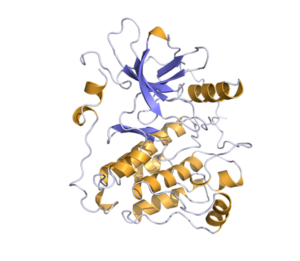
A large collection of previously established and disease-relevant targets are readily available, demonstrating 15 years’ experience as a top-level service provider in the field of structural biology.
To achieve this collection, WuXi AppTec has optimized expression, purification and crystallization conditions for XPRESS targets. We are constantly adding new proteins to our portfolio and have a large number of additionally established targets, that are not yet listed, that are also available under XPRESS conditions.
Contact us for information regarding your specific target and request a detailed proposal that matches your specific needs.
XPEDITE Service
- Established and/or published conditions
- Few hundred disease-relevant targets
- Average 4 months turn-around
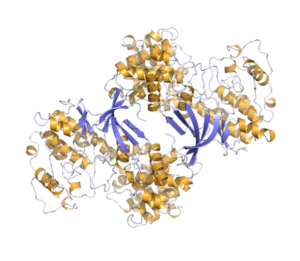
Is your target protein of interest not present in our XPRESS list even though there are several published structures available?
Our XPEDITE service aims to provide you with rapid access to crystal structures of previously crystallized constructs with your ligands of interest. As part of this service, we can also produce alternative constructs containing disease-related mutations or further optimize established crystal systems in order to determine structures at higher resolution.
In XPEDITE projects, we offer quick access to published targets and their disease relevant variants. XPEDITE grants you reliable and quick access to complex structures of published targets with your proprietary compounds. The XPEDITE model structure is the same as our XPRESS portfolio, only with the addition of an initial protein production phase (about 8-12 weeks) followed by an average turnaround time of 8 weeks for subsequent complex structures. XPEDITE projects also include the work on disease relevant mutations of established targets and the optimization of published but low quality structures. Additional protein constructs might be required to address the specific project needs.
With the dawn of personalized medicine and the occurrence of inhibitor resistant variants in cancer patients, the investigation of disease relevant mutations becomes more and more important. XPEDITE grants you access to complex structures of mutated target proteins and enables our clients to investigate the molecular mode of action for their drug candidates.
XPERT Service
- De novo structure determination
- Challenging targets (multi-subunit complexes, membrane proteins…)
- Crystallography, Cryo-EM, NMR
- Average > 4 months turn-around
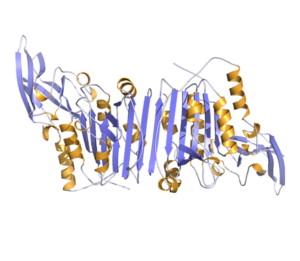
Customized Structural Biology Solutions For challenging targets, modes of action and de novo structures as well as antibody-antigen complexes.
Our team of experts will work closely with you to prepare a sound scientific plan with clear milestones to address your needs and lead you to successful de novo structure determination. This blueprint is then translated into a flexible and success-based payment plan, which is accompanied by personalized project management.
Under XPERT services we offer customized structural biology solutions for your challenging targets, using either crystallography, Cryo-EM or NMR.
The XPERT projects are comprised of de novo structures as well as structures of challenging targets, such as integral membrane proteins, full-length multi domain proteins or large multi-subunit protein complexes.
If you are looking for professional and skilled solutions for customized protein production and de novo structure analysis projects, our XPERT model can precisely meet your requirements. Our team of highly experienced experts will design and implement a robust and reliable process to enable customized structural analysis of even the most challenging targets. Many years of experience and broad expertise in protein science has resulted in the successful solution of structures from more than 200 different target proteins.
Examples of XPERT targets cover multi-subunit protein complexes (core + regulatory subunits), RNA/DNA complexes, protein + nucleic acid complexes, membrane proteins and membrane associated complexes, and partially folded protein and complexes.
CryoEM
At WuXi AppTec, we run several initiatives to offer negative staining and Cryo-electron microscopy (cryoEM) services. Specializing in the production of large protein complexes and difficult to express and purify targets, we offer tailor made proteins in buffer optimized conditions at their highest purity and homogeneity, allowing suitability for assays, biophysics, crystallography and CryoEM.
The technique offers multiple advantages:
- Allows the structure determination of samples that are unamenable to crystallization (e.g. proteins with flexible regions, membrane proteins and large complexes)
- Vitrification of the sample maintains it in a closer-to-native state than crystallization
- Very low material consumption (about 0.1 mg)
- No need for extensive protein engineering to improve the likelihood of crystallization
But, the resolution is relatively low (mostly > 3Å) compared to X-ray crystallography and this technique is only applicable to target proteins and complexes with high molecular weights.
Microscale Thermophoresis
Determination of binding affinity in free solution
WuXi AppTec’s subsidiary, Crelux, is the most experienced world-wide user of Microscale Thermophoresis (MST) technologies. MST services include assay development, supply of proteins for MST (or other assays), fragment screening, fragment or hit validation and any kind of interactions studies.
For eight years, WuXi AppTec has successfully applied MST with Monolith NT, 115 NT, LabelFree and NT automate devices for hit and fragment validation, making us the most experience CRO for MST.
MST Example: Binding Assay for Kinases
Quantification of protein – ligand interaction in free solution
Principle:

Determination of binding affinity:

Staurosporine binding to selected kinases (Kd):
- CDC7 (44.7 ± 18.6 nM)
- FYN (10.4 ±1.2 nM)
- EGRF (1671 ± 227 nM)
- WEE1 (150.1 ± 21.1 nM)
- RET (1.18 ± 0.60 nM)
- KIT (1527 ± 138 nM)
- p38 (SB203580, 24.2 ± 5.9 nM)

